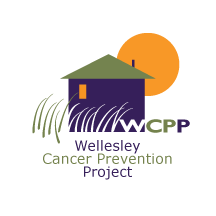By Elizabeth cialis K. Daly/ Special To The Town Crier
Thursday, June 22, 2021
Thinking of spraying your lawn anytime soon? You might want to consider this sampling of opinions from a few doctors who don’t think it’s such a good idea.
Are you a parent?
“Children are much more susceptible to health effects of pesticides than adults,” according to the president of the Pesticide Education Center in San Francisco, Dr. Marion Moses. “At the same level of exposure they will absorb more pesticides, because they have more skin surface for their size, and take in more breaths per minute. Children’s ability to degrade pesticides in the liver and their immune system protections are not fully developed.”
Dr. Moses specializes in both occupational and environmental medicine, and was formerly with the department of epidemiology at the Johns Hopkins University School of Medicine.
She also states that many lawn chemicals “are known or suspected to cause cancer, birth defects and infertility. They can also damage the brain and nervous system, lungs, kidneys, liver, endocrine and immune systems.
“Long-term (chronic) effects linked to pesticides,” she went on, “include cancer, infertility, birth defects, Parkinson’s disease, and damage to the brain and nervous system. The types of cancer seen in children include leukemia, brain cancer, non-Hodgkin lymphoma, and soft-tissue sarcoma. The same cancers are seen in adults as well as multiple myeloma, cancer of the pancreas, breast, prostate, kidney/bladder, eye and colon-rectum.”
The director of the Center for Children’s Health and the Environment (CCHE), Dr. Philip J. Landrigan, spells out children’s vulnerability a bit more.
“The big problem with children is that they are just inherently more vulnerable to environmental chemicals than adults. First of all, they are more heavily exposed pound for pound. They drink more water, they eat more food, they breathe more air, pound for pound. So they take into their bodies more of any chemicals that are in their environment, and, of course, they play on the floor and put their hands in their mouths. Then, on top of that, they are very vulnerable biologically, because they are growing and developing.
“These developmental processes are very, very delicate, and they create windows of enormous vulnerability such that if a child is exposed to a toxic chemical at just the wrong moment of fetal development, of early development, the changes can be profound … We now suspect that certain pesticides can kill cells in the brains of very young children at doses that would be more or less harmless for an adult.”
The CCHE is based at the Mt. Sinai School of Medicine in New York City, where Dr. Landrigan is also a professor of pediatrics.
In the words of Dr. Larry Kaplan, a gastroenterologist from Wellesley, who is also on the Board of Directors of the Wellesley Cancer Prevention Project, “A number of malignancies, particularly childhood cancers, have been scientifically linked to one or more of the ingredients in pesticides. These cancers include leukemia, non-Hodgkin’s lymphoma, Wilm’s tumor, soft-tissue sarcoma, and testicular carcinoma. Also, organophosphate insecticides have been proven to damage the nervous system and could conceivably be related to early dementia and Alzheimer’s disease.”
Dr. Kaplan added tentatively, “There may be a relationship between colorectal cancer and pesticides. Also, such auto-immune diseases as ulcerative colitis or Crohn’s disease could be triggered by an ingested toxic substance in our environment.”
As a non-smoking survivor of lung cancer himself, Dr. Kaplan has a particularly keen concern for carcinogens and other toxic agents in the environment.
With respect to children, born and unborn, Dr. Susan P. Pauker of Weston, chief of the Genetics Department of the Harvard Vanguard Medical Associates, said, “As a medical geneticist, I am concerned about lawn chemicals for our Weston children, playing on the lawns. In addition, I am concerned for the potential teratogenic (poisonous effect on fetal development) role for our pregnant neighbors, contributing to the 2 to 4 percent birth defect rate in newborns. Runoff into the water reservoirs and into the Charles spreads the danger.”
Are you sure the pesticides you’ve used had no ill effects?
Addressing that point, Dr. Moses writes, “Just because you do not get any symptoms from pesticides does not mean that you are not being exposed and are not at risk. Long-term effects such as cancer and brain damage, especially in children, may occur from low-level exposures over time that do make them acutely ill.”
Dr. Landrigan feels that much more research needs to be designed to “replicate the human condition in which exposures in the earliest stages in life may produce disease only decades later.”
Referring to the role of the U.S. Environmental Protection Agency (EPA) in protecting the public, Dr. Landrigan said in 2001, “Americans are most likely to be exposed to the 28,000 high-production-volume (HPV) chemicals that the U.S. Environmental Protection Agency estimates are produced in quantities of over one million pounds per year.
“No basic toxicity information is publicly available for 43 percent of the high-production-volume chemicals according to the EPA. And although children are now recognized to be especially vulnerable to chemicals in the environment, only 7 percent of HPV chemicals have been examined for their potential toxicity to children or to human development.”
Dr. Kaplan added another perspective to this problem.
“All federal agencies, including the EPA, need to adopt the ’precautionary principle’ of consumer product approval that places the burden of proof on manufacturers to demonstrate their product is safe for human, animal and environmental use rather than force the regulators to show that the product is unsafe. To be more specific, ’when in doubt, leave it out.’”
Note: Statements by Dr. Philip J. Landrigan were taken from an interview in March 2001 with Bill Moyers, as part of a TV documentary titled “Trade Secrets,” and testimony given in June 2001 before the U.S. Senate Committee on Environment and Public Works. The statements by Dr. Marion Moses were excerpted from a series of publications called “Consumer Pesticide Safety Series,” which she authored.
